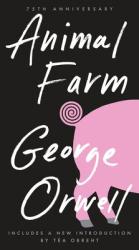
Animal Farm by George Orwell is an allegory about a farm of talking animals that push out their farmer after the abuse that they endure and proceed to create their own form of government. The animals form their government without the realization of the need to work for survival and have to adapt to the situation which causes discrepancies and arguments. I thought that this book was really good due to the surprising climax, ruthless betrayal, and the historical relation that it contains, but it does have some dragging parts. The plot is unpredictable and very interesting throughout. I had to read this book for school and thought it would be boring, but after reading it I gained knowledge of history through symbolism and recommend this book for history enthusiasts such as myself. Reviewer Grade: 9
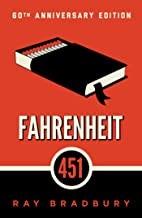
Fahrenheit 451 by Ray Bradbury is a dystopian novel about Guy Montag; a firefighter in a world that has illegalized books. His occupation results in burning books that are found in citizens' homes and after witnessing a woman that was burned with her books after refusing to leave them, Guy has a disturbing realization of his society. The progressive plot gave me the excitement of coming home and reading while the ending left me in a jaw dropping manner. I thought that the book was amazing due to the mysterious plot and the relations it has to our world today. I had to read this for school and thought it was going to be boring, but in the long run it became one of my most favorite books I have ever read and I would definitely recommend it for readers who love dystopian novels. Reviewer Grade: 9
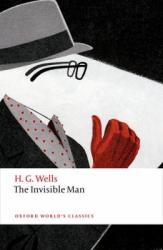
The Invisible Man by H.G. Wells is a science-fiction novel about a man in England in the 1800s who creates a way to make himself completely invisible without a way to change it. The life of a scientist named Griffin, who uses his invisibility for harm, is described throughout the book with an unpredictable ending. I selected this book for a school report, but I would definitely recommend the book to read if wanting a novel that keeps you on edge and wanting more. I thought that this book was pretty good due to the mysterious plot and ending though there were some dragging parts. I believe it is worth the wait for the surprising ending that left me in shock.
Reviewer Grade: 9

"The Invisible Man" by H.G. Wells is a gothic literature novel about an albino man in the 1800s who turns himself invisible. The book follows his journey through England as he commits a multitude of crimes and inevitably gets caught and killed. I didn't like reading it because I felt it was boring, and it was hard to keep reading since I had a strong dislike for the main character. Despite not liking the novel, I read it for school during our gothic literature unit, and it is a good example of gothic literature. "The Invisible Man" isn't surprising but rather shocking because the invisible man's actions are so abnormal. It could be relatable if you were wronged by someone or something and want to take revenge on them. It's not one of the best books I've read this year.
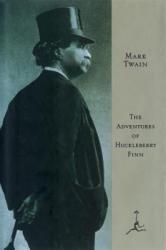
The Adventures of Huckleberry Finn is an exceptional novel filled with mischief, fun, and excitement. Huckleberry Finn is a young teenage boy who just ran away from his civilized, structured life in search of something adventurous and new. After leaving on a raft, he meets a slave, Jim, who slipped away from his home. Huck and Jim set out on a rafting journey down the river to make a new life and find Jim’s family. Along the way, Huck is conflicted between turning Jim, the runaway slave, in, or letting him reach freedom. As they go along, he discovers his true self and makes his decision about Jim. Filled with fun stunts, mishaps, and laughter, Adventures of Huckleberry Finn is an amazing classic you’re sure to love.
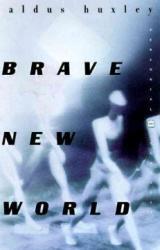
Brave New World by Aldous Huxley is about a futuristic society that revolves around conditioned people. People are made by machines that condition them emotionally and physically for a certain job. Since people are conditioned to perform certain tasks they are happy and content. This book follows Bernard who actively questions the system and is unhappy. Throughout the book, it brings up the question of whether it is better to have an orderly and perfect society or for people to have emotions and free will. Aldous Huxley does a wonderful job of building a world where individuality is erased. The book was an interesting read and would give it a 3 out of 5 stars.
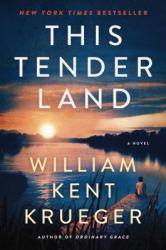
Orphaned and alone, Odie and his brother, Albert are sent to Lincoln Indian Training School where they spend the next four years of their lives. However, the superintendent is cruel and abusive, and after committing a grave crime, Odie is forced to run away. Together with his brother, Mose his friend, and Emmy, an orphaned girl, Odie and his newfound family take a canoe down the Minnesota River with plans to go to Saint Louis and settle down with their family. During their odyssey, the friends change in different ways as each of them grapples with their heart's truest desires.
This book is an allusion to a different popular story, and I loved the different references and allusions. The main characters are all children, but each of them brought me so much insight into the world and what it means to "find what's in your heart". The novel is also full of great surprises that kept me wanting to read even more! It's mostly an adventure novel, but there is some romance and elements of fantasy and magic, so there's a bit of everything for everyone. The ending was also beautiful, and although it was a bit sad, it was fitting.
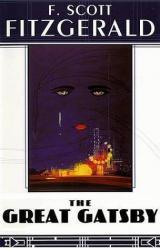
The Great Gatsby is likely the most commonly read book by students between middle and high school, an assigned reading that teaches students what some aspects of life were like in the 1920s and the over indulgent society that preceded the Great Depression. However, it is also a very simple book about an image obsessed man whose life in a summer is documented by a man who barely dares to call himself a friend. For all the hype surrounding The Great Gatsby, especially with a movie starring Leonardo DiCaprio, it is honestly a pretty underwhelming read. Never was I completely enraptured by the story or awestruck by any new information given by the author. It is a descent book with some interesting underlying meaning but overall I would say it is mediocre at best, certainly not a literary masterpiece to be held in prestige.
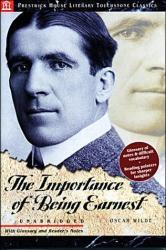
The Importance of Being Earnest, by Oscar Wilde, is a short play about characters who are indeed NOT earnest. Algernon, a bachelor living in London, has an imaginary friend called Bunbury whose false existence he uses to get himself out of unpleasant social gatherings. Similarly, Jack—who lives in the country with his ward, an orphan named Cecily—has a made up brother named Ernest, whose constant state of “illness” allows him to visit the city when he pleases. From these false identities arises a huge misunderstanding, when Algernon decides to visit Jack’s country home posing as Ernest, the imaginary invalid brother whom Jack had planned to kill off that very day in order to end his pretending once and for all. The two friends must sort out the misunderstanding with their respective fiancées, and end up making an ironic discovery in the process.
This play is highly amusing, with its opinionated characters and witty commentary. It has a satisfying denouement; from start to finish the plot is engaging, and it doesn’t drag on. I would recommend The Importance of Being Earnest to anyone who likes a clever and entertaining comedy, or just a good laugh!
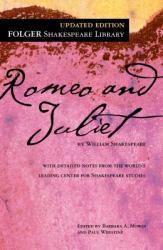
Many have probably heard of this book, one of Shakespeare's best dramas written. Everyone has probably heard about how it's of how two lovers who try to keep a relationship through their parents' everlasting feud, but there's much more to it. It's not only about love, but also about trust, death, and interconnecting relationships. It's about heartbreak and pain washed away with heartache and drama. But one thing is for sure, the two won't stop trying to be together until death takes them apart.
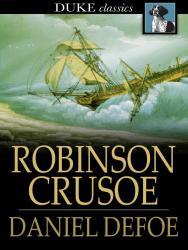
Robinson Crusoe is an incredibly fun novel to read. It is a fictional autobiography about the character Robinson Crusoe and his adventures while shipwrecked on an island. While the book does use some confusing language at times, the creative results it produces are greatly entertaining. The book starts slow, however, the pacing of the book almost depicts the exact development of Crusoe through his stagnant start and then a life of adventure later on. Around a third into the book, Robinson Crusoe simply states that he would focus on only the important parts of his adventure due to his lack of ink. It is at this point where the book starts to shine, and Robinson's island survival starts to mix supernaturalism and realism. The novel does not have any super deep themes and rather opts to just tell a straightforward story, unlike many modern island survival novels that attempt to be thought-provoking. Overall, the novel was a fantastic read. I would recommend this book to any person that enjoys adventure and survival.
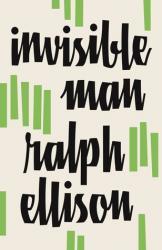
Ralph Ellison's Invisible Man is an essential American classic. Written in the late 1940s, it tells the story of a young African American man who moves north during the Harlem Renaissance and faces many trials as he attempts to find his place in society. This novel is a candid portrayal of life for Black Americans in the pre-Civil Rights era, exposing the hardships and prejudices that are often overlooked in retrospect but were all too real for Blacks during this time. It is honest, reflective, and blunt; often unsettling and disturbing. A central theme of Ellison's novel is the idea of blindness and how it affects identity. The protagonist is left confused and misguided as a result of the blindness of those he encounters, trying to fit into the expectations of others, until at last he realizes that he is, and has always been, "invisible" to society. With this revelation, the invisible man at last finds his own identity.
The novel recounts all of the events leading to the protagonist's discovery of his invisibility, beginning at his colored college in the south and taking the audience north to Harlem. The protagonist faces many different circumstances which reveal just how marginalized Blacks were in the United States in the 30s; each episode is a testament to the challenges faced by African Americans (even a reflection of the challenges faced by African Americans today) due to the blind discrimination of white people. Each incident faced by the invisible man is largely a reiteration of previous ones, merely taking place in different circumstances, which emphasizes his lack of identity--even his own blindness. Eventually, due to an unfortunate incident, the protagonist loses all sense of who he used to be, and this is what allows him to begin to make change--for better or worse. There are numerous violent and suggestive scenes in this novel, so I would recommend it to older, more mature teenagers.
Ellison takes his readers on a powerful, enlightening journey with Invisible Man. His compelling writing is intertwined with tragic humor and soulful undertones of blues and jazz, the backdrop for an incredibly raw and moving novel. The invisible man's story is very relevant to society today, and Ellison's messages should serve as reminders to us all. I believe every American would benefit from reading this novel at some point in their life; it illustrates such an important part of our nation's history, and that of African Americans. Ellison portrays the protagonist's emotions with such introspective depth, every conflict and thought explored in all its complexities. Invisible Man may not be a particularly fun read, but it is important and it is worthwhile.
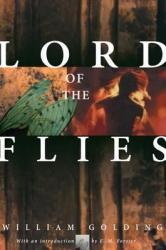
A group of boys crash on an uncharted island. The boys are left with no adult supervision, leaving them to survive on their own. They begin to create a form of order, but soon that order collapses and terror begins.
I had to read Lord of the Flies for school, but it exceeded my expectations. This book made me want to cry, stare at it and ponder what I had just read and throw it across the room all at the same time, but in the best way possible. This book will keep you on the edge of your seat and reading until the very end. There will be a character or characters that you can relate to and root for. This book is a little more on the violent side. I would definitely recommend it for an older audience. Even though classics are considered boring and bland, this one is definitely worth a try. It's an emotional roller coaster that you don't want to miss.
Reviewer Grade: 10
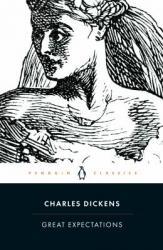
Great Expectations is a story about a young boy, Pip. It starts off with Pip in his expected life, a Blacksmith with his Stepfather Joe. When he comes of age to be apprenticed, he is sent to a mansion to work, under the employ of a strange Miss Havisham. She flips his views upside down, while breaking his confidence in himself. He sees himself and his friends, the Commoners, as dirty and common. His hopes change as well, but are broken.
The story in this is intriguing, as well as long and dense. I personally didn't like this one, but you might.
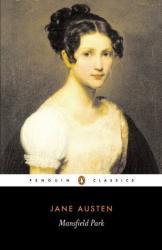
As a young girl, Fanny Price is sent to live with her cousins the Bertrams at their large estate in Mansfield Park. The book follows Fanny from her childhood living at Mansfield into her early adult life. Although they are family, Fanny has no one to rely on. She is isolated from the world and finds comfort in reading. Austen most wonderfully masters the art of empathy in this novel, as the reader feels incredibly broken whenever Fanny is hurt or emotionally worn. Mansfield Park has been called controversial for the fact that Sir Thomas, Fanny's uncle, owns a plantation with slaves. Although this is wrong, it is an uncomfortable reality of the time that is era-appropriate. Besides this, Sir Thomas is not made out to be a good person worth emulation. This book is highly recommended for lovers of Austen or Jane Eyre.
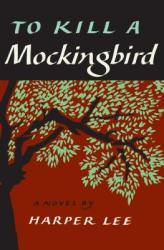
To Kill a Mockingbird is a novel entirely worthy of its praise. The humor, subtlety of the impact left by the narration from a young girl's perspective, and incredibly real themes all fit together perfectly. The story is a straightforward read and combined with the intricate storytelling based on the author's own life, the topics surrounding race and justice feel meaningful. The story follows Scout Finch, a young girl, and her friends Jem and Dill while depicting their views on life in the South during the Depression. The juxtaposition of childish natures and mature outlooks on violence, prejudice, and societal struggles brought about by the narration stand out. Each instance of injustice and depiction of the imperfections of humanity in a struggling society tie the development of the characters and rise to the climax together well. Overall, I would recommend this book to anyone, as it is a fantastic, and rather light read.
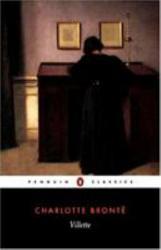
Villette is an incredibly hard read. The novel follows Lucy Snowe in her escape from England. She reminisces on her life's story and the overall storyline is intriguing. The side characters play their parts well, and certain tragedies in the story do leave hard-hitting impacts. Nevertheless, the book is over four-hundred pages of intricate literature with an incredible range of advanced vocabulary. However, the complexity of the read does add a bit of fun to the book, despite drawing attention away from the story itself. Looking up advanced English and French vocabulary almost makes the novel a neat, theatrical dictionary. While hard to understand and read, it allows the reader to dive deeper into each character and develop them more on a personal level. Overall, I would only recommend this book to people looking for a challenging read and with time on their hands.
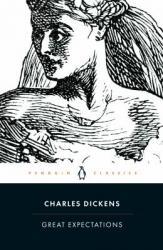
I read this book because it’s my mom’s favorite book of all time. It follows a young boy named Pip as he grows up. It’s a love story, and a pretty good one. Though it’s a little hard to read because of the old style English writing that Dickens used, it’s definitely worth reading. Overall, I would highly recommend this book!
grade: 11th
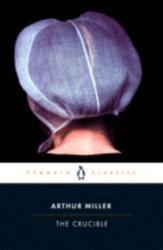
I read this book in English class my junior year of high school. I find the Salem Witch Trials interesting, so I was excited to read this book. While this book is based on actual events, there are some added fictional parts. I thought it was interesting how rumors and blame could cause the deaths of so many people who did nothing wrong. Overall if you find the Salem Witch Trials interesting, I would highly recommend this book!
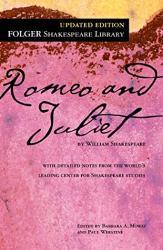
This Shakespeare classic tells the story of two star crossed lovers. While the story is well known, the play script is still rewarding to read. While the writing style can take a bit of time to become accustomed to, the thoughtfulness of the dialogue can be appreciated much better than while watching the play. While the ending of the book is somewhat spoiled in the prologue, the story telling is almost more important than the story. The writing is filled with word play and jokes in addition to the famous lines of eloquent iambic pentameter. Sometimes a translation is needed to fully understand what Shakespeare means in certain lines, but this book will leave readers with a new appreciation for poetry and writing.
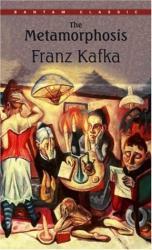
After turning into a bug, Gregor realizes he is late for work. However, it soon becomes apparent that Gregor will no longer be able to work. His family's view of him quickly changes as his previous contributions to it are quickly forgotten. This thought provoking book questions people's worth after they are lo longer able to contribute to society. Although the writing style is dry, the book is filled with allegories and symbolism that comment on the nature of individuals in society. This leaves readers to examine their own views on an individual's worth to society.
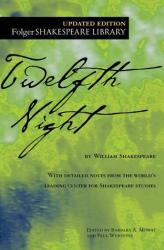
Twelfth Night is a play written by William Shakespeare. It is about multiple love triangles that take place in Illyria. The main problem is that two twins both think the other is dead and are mistaken for each other which creates many problems.
Twelfth Night is a horrible play/book. It is very dull and extremely confusing as people's names are changed throughout the play and people are constantly being mistaken for each other. Unless you have to read this, I would not recommend this book to anyone unless they want to sit through a very confusing, dull play.
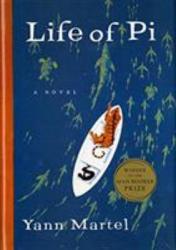
Life of Pi starts off slowly, with a lot of details that I thought were irrelevant to the story. While Pi is moving with his family and their zoo, their ship sinks in a storm. Pi makes it to a life boat, but there are also four animals from the zoo on it. One of the animals is a tiger, which Pi must learn to control. He must also get food, water, and protection from the sun and sea in order to survive. This book shows the struggles to survive while isolated from society and also shows the fight to retain one's humanity throughout this struggle.
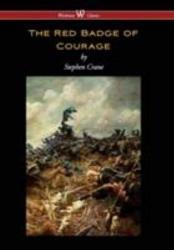
The Red Badge of Courage is really not a great book. It is centered around the Civil War and tells the story of Henry, a Union soldier who leaves his farm to go fight. During the war he cannot make up his mind to run away from the field or stick with his friends in battle. While some might find the book interesting, personally it just dragged on and on. Sometimes it would go really in depth into a battle or a part of the story that was not very important and in others it would just gloss over a major part that you needed to understand. I would not recommend this book to anyone as it is hard to understand and is not very well written.
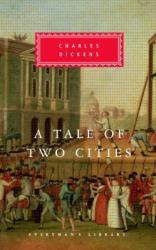
A Tale of Two Cities is a captivating book. Set during the period leading up to and during the French Revolution, the book details how the French aristocracy and the French Revolution affected the rich and the poor through the stories of Charles Darnay and Alexandre Monette. It also shows the angry and vengeful side of the Revolution through the Defarge's and their wine shop. A scene where a wine cask is dropped demonstrates the desperation and poverty experienced by the citizens of Paris that led to the anger behind the revolution. Dickens also brings the book to life through life-like characters that emotionally invest readers in the story. Alexandre Monette exhibits fatherly care for his daughter, yet he also struggles to deal with his time in prison, leading him to rely on his daughter for support. Sydney Carton contains likeable aspects mixed with relatable flaws that make him instantly lovable. Dickens expertly connects each scene to develop the story and foreshadows multiple aspects of the climactic ending throughout the book.
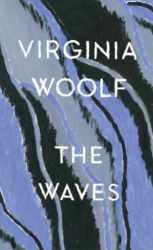
The Waves is an astounding novel by Virginia Woolf, known as her most experimental work. The novel is split into nine sections, each separated by a short passage describing the sea at a certain time of day; as the book progresses, these intercalaries move from sunrise to sunset to mirror the lives of the characters as they age in the succeeding chapters. The Waves is unique because Woolf uses a stream of consciousness writing style to capture the thoughts of her characters rather than dialogue, enhancing her characterization and creating her own take on fiction. The novel follows the lives of six friends, beginning with their childhood together. It explores the depths of human thought and as they grow older, and dives into questions of mortality and purpose. Each of the characters is starkly different from the rest, shedding light on the complexities of life through multiple perspectives.
Woolf does an amazing job of creating emotional depth in this short yet vast novel. I found everything from her descriptions of the ocean and the earth to the nuances of ordinary life to be very beautiful. Woolf's questioning of existence through her characters led me to consider my own life, and I found myself often completely immersed in her vivid imagery and rich writing style.
This novel is realistic in that the characters are all flawed in some way, and have their own fears and dreams. The illumination of their internal conflicts through stream of consciousness makes the book very personal and intimate, which is a rare experience.
I can't even begin to do justice to The Waves, so I strongly recommend that all young adults and adults read it for themselves. It has been one of of the most thought-provoking books I've ever read, and there is something in it for everyone. Virginia Woolf's The Waves is a wise commentary on humanity and a magnificent work of art; it should be read to be believed.
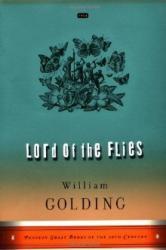
This book begins with the crashing of a schoolboy's evacuation plane, which leaves them stranded on an island and left to fend for themselves. It is rich in figurative language, although it may be hard for some people to understand because it is written in old-style English. Symbolism is a strong component as well, considering that this book is an allegory, so paying attention to every detail and symbol is important. The author wrote the characters to display a mental change, which emphasizes how the lack of civilization transforms these young schoolboys into feral beasts. The ending of this novel sums it up perfectly and explains any actions that might've confused the readers when enjoying this book.
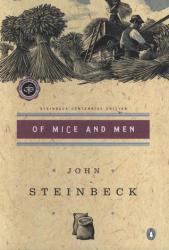
I read this book my Freshman year of high school for English class. I know that Steinbeck is a very famous author, but I just didn’t really care for this book. I thought the story, which is about two men looking for work during the Great Depression is rather boring. I cry while reading sad parts in books all the time, but for some reason the sad ending in Mice and Men just wasn’t as sad as people made it out to be. Overall, I wouldn’t recommend this book, I didn’t like the plot or Steinbeck’s writing style.
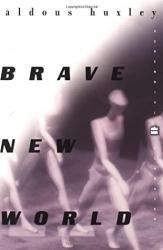
Brave New World is a classic dystopian novel, written in the early 1930s by Aldous Huxley. Set in a society in which humans are manufactured and programmed depending on their assigned social class, it addresses individualism, conformity, and the dangers of complete government control. Citizens in this dystopia frequently take a drug to subdue their emotions, living in a state of ignorance and 'bliss' as they go through the motions unquestioningly. In order to keep the system of manufacturing people running smoothly, certain things are considered taboo--such as literature, religion, and family--while what we typically consider unorthodox is commonplace in this society.
The story follow several central characters who don't completely fit in or believe there could be more to life than what they experience every day. Huxley takes readers to a 'Savage Camp' where John, the protagonist (whose ideals are completely different from everyone else's), is introduced, and the other characters experience an extreme contrast to their advanced and ordered society. Readers experience John's intense internal conflict as he attempts to find his place in the new world into which he is thrust; they also learn more about the ideology of the dystopia, and what goes on behind its 'perfect' facade.
I enjoyed most aspects of Brave New World, and would recommend it to dystopian readers who appreciate a deeper meaning. However, there were some parts of this novel that I found disturbing, as what's considered taboo is the opposite of how we view things in our world. Sometimes I had trouble connecting with the story emotionally, and I would've liked more specifics about how the dystopia came to be. But looking past the negatives, the themes Huxley brings up are very important, and even pertinent to society today. His characters have depth, the underlying themes make readers think, and overall it is an interesting concept of a future world with complete dictatorship. Brave New World is a classic that I believe everyone should read.
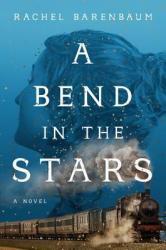
A Bend in the Stars is a fiction story about a Jewish family surviving the 1914 Holocaust. It rotates around Miri, a female surgeon in a world of Men. When the Holocaust starts, her whole life is turned upside down as the rush to America begins. I love this book for the honesty of elements like the interaction between Vanya and Kir, the two intelligent scientists, and the relationship between Sasha and Miri. I recommend this book to anyone who's looking for an interesting read.